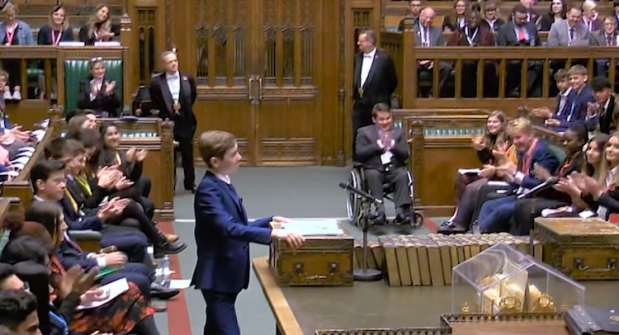Early on in lockdown, I was picking up my daily paper and was confronted by someone who had contrived his own face mask with polythene bags and masking tape. He seemed blissfully unselfconscious, despite looking as if he was off to a Hannibal Lecter-themed fancy-dress party; I shared a superior snigger with the newsagent and decided I would have no truck with masks. But as time went on I had a change of heart; I do all the shopping in our household (a quirk of our domestic arrangements) and it began to dawn on me that many of my fellow citizens had been scared half to death by the pandemic and viewed every close encounter with a fellow shopper as potentially fatal. Not to mention the check-out ladies; at a time when the media was bingeing on the PPE shortages, there they were, exposed to the breath of the passing throng. And talking to them it was clear many were anxious.
And so it was that I decided that wearing a mask is all about manners. If the definition of a gentleman is someone who tries always to put others at their ease then it is obvious that the wearing of masks has become primarily a question of politeness. Regardless of whether or not one thinks they are efficacious as a way of preventing the spread of the virus, the simple truth is that we should all wear masks in shops – because that is the mannerly thing to do.
Which is why I am baffled by the vehemence of the anti-mask brigade. Peter Hitchens, for instance, dubs masks ‘muzzles’ and sees their imposition as an intolerable infringement of his liberties as a free-born Englishman. Really? Surely what’s needed here is some perspective. Libertarians like Peter seem to have convinced themselves that masks are a matter of vital principle, whereas for the majority of us they are a rather blunt, and admittedly tiresome, response ordained by a government struggling to do its best to contain the disease.
Railing against masks and the other restrictions is all too redolent of Swift’s satire on English politics of the 18thcentury; in Gulliver’s Travels, Lilliput and Blefuscu engaged in a bloody struggle over which is the proper way to eat a boiled egg. The ‘Big Endians’ and the ‘Little Endians’ decided it was a principle worth dying for and Swift’s merciless parody was intended to ridicule the ‘men of principle’ who squabbled so fiercely in his own day about controversies which he perceived as trivial. What Swift was prefiguring was what Sigmund Freud dubbed der narzissmus der kleinen differenzen – the vanity of small difference; that tendency of polemicists to proclaim they will go to the wall for ‘principles’ that seem to most of us desperately unimportant.
The lockdown provisions have thrown these arguments into sharp relief; there are those who see the government’s response as a power-grab – a despotic confiscation of ancient liberties all done in the name of an exaggerated threat and with the intent of making permanent inroads into our freedoms. If, when you look at Boris Johnson, you see an authoritarian in libertarian clothes who has imposed the lockdown as a sinister way of extending state control, I would politely suggest that you are indulging in a far-fetched conspiracy theory.
While I can see that there is some truth in the argument that the threat from Covid was exaggerated I cannot see that the government had much of a choice; we live in an age when people expect the government to protect them. If, instead, it had sat on its hands and allowed the virus to do its worst until ‘herd immunity’ was reached (and that was clearly Boris’s first instinct) opposition politicians would have had a field day; as the death toll soared and hospital corridors filled with the dying Johnson’s nascent political project would have been stillborn. Doing nothing was politically unfeasible. Inevitably the decision to impose the lockdown was a decision coloured by political considerations; how could it have been otherwise?
As to whether masks are any use or not in combating the virus that is another matter. Some – like Matthew Parris – argue that what we need is some scientific clarity on the issue. That will be almost impossible to discover; the scientific method requires a proper control group to test against the new proposition. In the case of face masks, given the myriad of other variables and our current low rate of infection, results are almost certain to be inconclusive. Most people. I suspect, favour a common-sense response; on a recent visit to Hokkaido, well before anyone had heard of Covid-19, I was surprised, as are many first-time visitors to Japan, to see face-masks being worn as a matter of routine. And – here’s maybe the evidence that Matthew seeks – Japan seems to have coped remarkably well with the pandemic. Certainly there will be other factors involved – the no handshaking tradition for instance – but it should give the mask-sceptics some pause for thought at least.
In the meantime, think of mask-wearing as a matter of etiquette; doubtless Spectatorreaders wouldn’t dream of talking with their mouths full, don’t have shouty phone conversations in public places and refrain from making personal comments about the obese. These commonplace courtesies are not done for ones’ own benefit but because other people might find them rude and off-putting. Similarly you don’t wear a face-mask because you want to – but merely to put other people at their ease and with the possible added advantage that doing so might, actually, be a useful prophylactic. And, really and truly, it’s no big-deal.
Got something to add? Join the discussion and comment below.
Get 10 issues for just $10
Subscribe to The Spectator Australia today for the next 10 magazine issues, plus full online access, for just $10.




















Comments
Don't miss out
Join the conversation with other Spectator Australia readers. Subscribe to leave a comment.
SUBSCRIBEAlready a subscriber? Log in